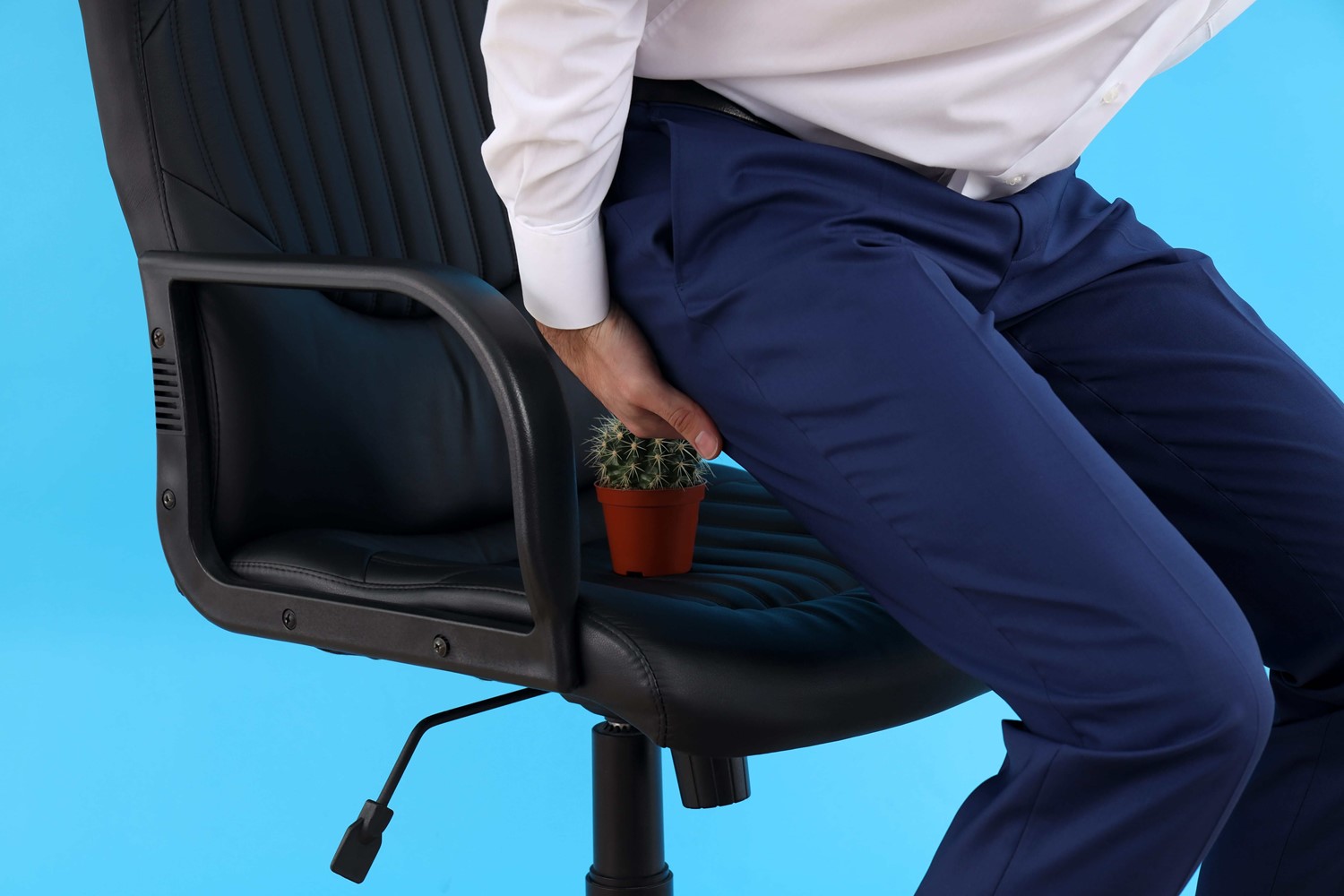Anal fistula
Peer reviewed by Dr Colin Tidy, MRCGPLast updated by Dr Hayley Willacy, FRCGP Last updated 21 Jun 2023
Meets Patient’s editorial guidelines
- DownloadDownload
- Share
- Language
- Discussion
In this series:Abscess
An anal fistula is usually caused by an infection near your back passage (anus) that causes a collection of pus (abscess) in the nearby tissue. When the pus drains away, it can leave a small channel (fistula) behind. An anal fistula may also be associated with certain long-term bowel conditions.
In this article:
Video picks for Anal and rectal problems
What is an anal fistula?
An anal fistula is an abnormal small channel (also called the fistula tract) that develops between the end of the bowel and the skin near your back-passage (anus).
Anal fistula symptoms
Back to contentsAnal fistulas can cause unpleasant symptoms, such as discomfort and skin irritation, and won't usually get better on their own. The symptoms of an anal fistula can include:
Constant, throbbing pain. The pain may be worse when you sit down, move around, when you poo or when you cough.
Smelly discharge from near your anus.
Passing pus or blood when you poo (rectal bleeding).
Difficulty controlling bowel movements (bowel incontinence); this is uncommon.
An abscess may form and this causes swelling and redness around your anus, and a high temperature (fever).
Continue reading below
Anal fistula causes
Back to contentsMost anal fistulas develop after an anal abscess. Just inside your back passage (anus) within your anal sphincter, there are a number of glands that make a fluid substance. These glands can become blocked and infected with bacteria (abscess).
If the abscess increases in size it may form a tunnel leading to the skin around your back passage. This will then create a fistula leading from inside your back passage to an opening in the skin surrounding your back passage.
An anal fistula can also occur as a result of long term inflammation or infection affecting the bowel. This can also cause a tunnel to be formed from the lining of your back passage to an opening in the skin. Examples of long-term bowel conditions that can cause an anal fistula include Crohn's disease and diverticulitis.
An anal fistula can also be caused following surgery or radiotherapy to your bowel and back passage. A large tear through your anal sphincter during childbirth (often called a fourth-degree tear) can also lead to fistula formation.
There are a number of other possible causes of an anal fistula. These include cancer of the anus, cancer of the rectum, tuberculosis and HIV infection and AIDS.
Diagnosing anal fistula
Back to contentsYou should see your doctor if you have persistent symptoms that suggest you may have an anal fistula. Your doctor will examine your anus and gently insert a finger inside your back-passage (rectal examination) to check for any signs of a fistula.
If your doctor thinks you might have a fistula, they will refer you to a bowel specialist for further tests to confirm the diagnosis and to assess the most appropriate treatment. These tests may include:
Proctoscopy. A special telescope with a light on the end is used to look inside your anal canal.
An ultrasound scan, magnetic resonance imaging (MRI), or computerised tomography (CT) scan.
Continue reading below
Anal fistula treatment
Back to contentsAn anal fistula will not heal without treatment and there are a range of different treatment options available. The first step is to treat any infection with antibiotic treatment. Anal fistulas then often require surgery. The main treatment options for an anal fistula include:
Seton procedure. A surgical thread is placed through the anal fistula track and tied to form a continuous ring between the inside and outside openings of the fistula. The thread is left there for several weeks to allow drainage and prevent infection, and so help the fistula to heal. A further procedure is then needed to close the track.
Fistulotomy. This is a procedure that involves cutting open the whole length of the fistula so it heals into a flat scar. It is the most effective method of dealing with a fistula and is the standard treatment for fistulas that lie near to the skin surface.
Fibrin glue. Fibrin glue is a combination of fibrinogen, thrombin and calcium. It is injected into the fistula track. It heals the fistula by causing a clot to be formed within the fistula and then healthy tissue to form within the fistula.
Fistula plug. This involves using a plug made from animal tissue to block the internal opening of the fistula. The plug is resistant to infection and encourages normal tissue to fill the fistula track.
Endorectal advancement flap. This procedure aims to cover the internal opening of the fistula. The internal opening of the fistula is removed and then covered with a small flap of healthy bowel wall that has been removed from the rectum.
Ligation of the intersphincteric fistula track (LIFT). A skin incision is made and the fistula track is exposed and then tied and divided. a modification of this procedure, called BioLIFT, involves placing a biological mesh to prevent a fistula reforming. However, this needs a larger skin incision and increases the risk of infection.
Depending on which procedure you have, you may not need to stay in hospital overnight. Some people, however, need to remain in hospital for a few days after surgical treatment.
Complications of an anal fistula
Back to contentsIf the anal fistula is not treated properly then recurrent perianal abscesses and a complex fistula network may develop and this may cause:
Pain.
Bleeding.
Faecal incontinence.
However surgery for an anal fistula can also cause complications. The main complications following surgery include:
Infection.
Faecal incontinence.
A further fistula developing.
Preventing anal fistula
Back to contentsYou can greatly reduce your risk of an anal fistula by avoiding constipation, keeping your stools soft and going to the toilet to open your bowels as soon as you feel the urge to go. To help your bowel work properly and keep your stools soft, it's important to drink lots of fluid and get regular physical exercise.
Patient picks for Anal and rectal problems

Digestive health
Rectal prolapse
A rectal prolapse is when part of the rectum (the last part of the bowel) drops or slips through the anus. A rectal prolapse causes a lump to stick out of your back passage (anus) and this can become quite painful. Although the lump can pop in and out at first, later on it can stay out all the time, especially when you stand up. This can cause problems with daily activities that involve walking or standing for any length of time.
by Dr Colin Tidy, MRCGP

Digestive health
Anal fissure
An anal fissure is a small tear in the lining of the skin around the back passage (anus). An anal fissure that lasts more than six weeks is called a chronic anal fissure. For most people, the anal fissure heals quite quickly but some form of treatment is often needed. Anal fissures may keep coming back.
by Dr Hayley Willacy, FRCGP
Further reading and references
- Limura E, Giordano P; Modern management of anal fistula. World J Gastroenterol. 2015 Jan 7;21(1):12-20. doi: 10.3748/wjg.v21.i1.12.
- Jimenez M, Mandava N; Anorectal Fistula.
- Carr S, Velasco AL; Fistula In Ano.
- Hwang SH; Trends in Treatment for Hemorrhoids, Fistula, and Anal Fissure: Go Along the Current Trends. J Anus Rectum Colon. 2022 Jul 28;6(3):150-158. doi: 10.23922/jarc.2022-012. eCollection 2022.
Continue reading below
Article history
The information on this page is written and peer reviewed by qualified clinicians.
Next review due: 12 May 2028
21 Jun 2023 | Latest version

Ask, share, connect.
Browse discussions, ask questions, and share experiences across hundreds of health topics.

Feeling unwell?
Assess your symptoms online for free
Sign up to the Patient newsletter
Your weekly dose of clear, trustworthy health advice - written to help you feel informed, confident and in control.
By subscribing you accept our Privacy Policy. You can unsubscribe at any time. We never sell your data.